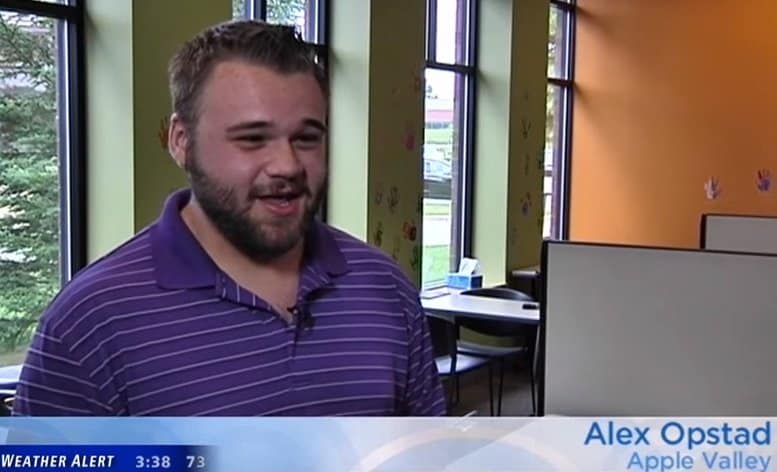“My Child Just Needs to Try Harder!”
One of the most common assumptions as to why a child struggles is that he is not trying as hard as he should be. When I meet with families a common assumption is, “My child can do it, he just needs apply himself or put forth more effort.” That can be true, but there are often underlying reasons a student is not putting forth maximum effort.
For example, if a child has cognitive weaknesses – areas like processing speed, working or long-term memory, logic & reasoning – the result will be that school is much more difficult for her than for other students who have stronger skills. Then when it’s time to sit down and crank out the homework, kids push back which can look like a passive avoidance, procrastination or a lot of conflict.
Meet Alex Opsted. His parents first heard about LearningRx when he was 13 years old and they brought him in for an initial cognitive skills assessment. His mom had assumed Alex’s academic struggles were mainly due to his lack of motivation. Though he tried to apply himself in school, Alex remembers school being difficult and confusing. In Middle School, Alex started to really fall behind and his parents did not know what to do. I was worried it was a “character issue,” says Alex’s mom, thinking back on that time. It seemed to her that her son was just not motivated.
“I almost cried when we got the assessment results” she continues, “It wasn’t a character issue—it was just how his brain processed.”
Alex trained at LearningRx and it completely changed school for him! It gave him the confidence he needed to finish high school strong. Now, at 20 years old he is close to obtaining his college degree, had a summer internship with Apple and has even started his own business!
Motivation is a common struggle parents and kids face in school—and more often than not, this is not simply an attitude problem—it is a cognitive problem. When kids have weaknesses in memory, logic and reasoning, or attention, school is difficult for them and more difficult than it may be for their peers. This gap is often internalized and kids start to avoid those things that feel too difficult for them to achieve.
If this is something you or a child in your family is experiencing, it may be time to book the initial assessment and see what underlying struggles may be at play.
Hear more about Alex’s story and LearningRx, featured on Twin Cities Live!







